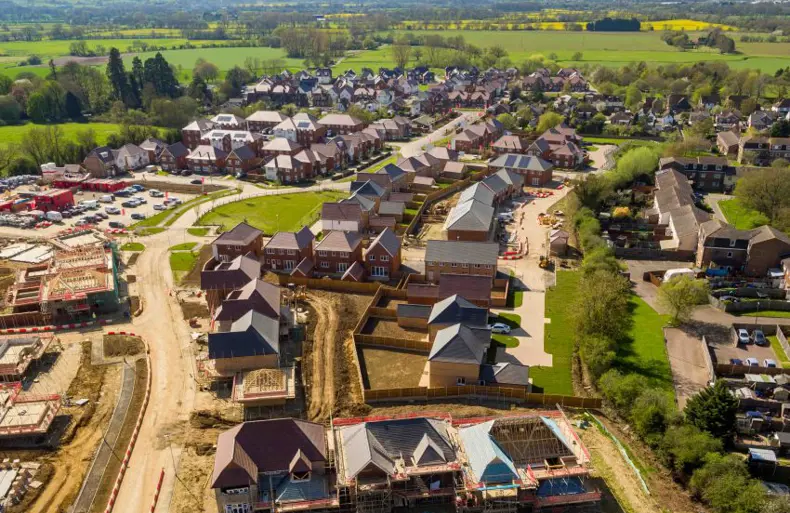As the 31st October draws ever closer we consider the impact of the ‘B’ word on the house building industry.
Brexit could have a serious impact on the sector for a number of reasons: an increase in the price of construction materials, the reduction of available labour (which is already impacting house builders) and negative market sentiment.
The industry heavily depends on low skilled labour from Europe, which has grown in recent years, especially from countries such as Romania and Bulgaria. If freedom of movement was to end and a visa system implemented, such as those that have been widely discussed, the level of migration of “low skilled” European workers would significantly fall, which could have far reaching repercussions for developments already underway and those in the pipeline.
It isn’t just so-called low skilled labour that the industry has to worry about, there would also be consequences higher up the supply chain, something which the Royal Institute of British Architects (RIBA) has serious concerns about. The organisation has produced a report making a series of recommendations to government to ensure that the UK’s architecture sector can still attract the young, dynamic workforce that helps to make the sector such a success.
Adding to the woes of house builders is the impact on trade and material. According to a 2010 study by the Department for Business, Innovation and Skills, 46% of building materials were imported from the EU and 63% exported to the EU. In a post Brexit world, these products could face both tariff and non-tariff barriers. If monetary tariffs on materials were subject to World Trade Organisation (WTO) rules, which could make items such as bricks more expensive, this cost is likely to be passed on to the landowner or the end purchaser.
Even worse are the non-tariff barriers. These are additional bureaucratic measures that mean products can’t simply pass over the border, causing a delay to materials being received. Such delays are estimated to cost companies an extra 6.5%.
The UK construction sector also benefits from access to cash from the European Investment Bank and the European Investment Fund who have invested almost €8 billion in major UK infrastructure. The loss of future investment from both of these institutions could result in a fall of big infrastructure projects, which help to improve connectivity and boost our economy, and create fewer development opportunities for housebuilders. Even with an emergency Budget from the Chancellor to help cushion the blow of a no-deal Brexit, it’s unlikely that this level of funding will be matched by the UK Government. This could have severe ramifications.
House builders continuously monitor market confidence to establish the volume of sales rates and values they should be achieving; generally it is considered current trading remains in line with normal seasonal patterns. However, over recent months, there are concerns both buyer and seller interest is starting to wane and sales rates are slowing, particularly in more challenging market areas. The reasoning behind this is almost certainly the economic and political uncertainty, with many people wanting to see what materialises following the 31st October deadline.
Housebuilding is notoriously vulnerable to sentiment and it needs political certainty to thrive. However, it also needs labour, affordable materials and able buyers. If the UK can’t provide this via an agreement with the EU, it must find a way to ensure it on its own. The extension of the Government’s Help to Buy scheme until 2023, the continuation of low interest rates and divorcing from some of the EU regulation red tape will help to maintain demand for new-build homes.
Importantly for the house building market to thrive it needs significant support from the Government through continuing to allow migrant workers relative ease of access to the UK, providing incentives to train British people in the skills necessary for the construction industry and helping to finance integral infrastructure projects that can unlock opportunities for both house buyers and developers.




